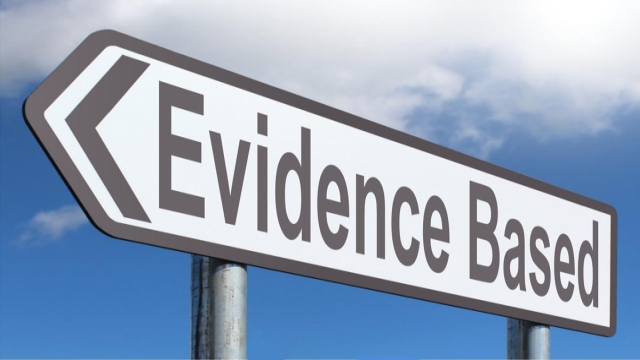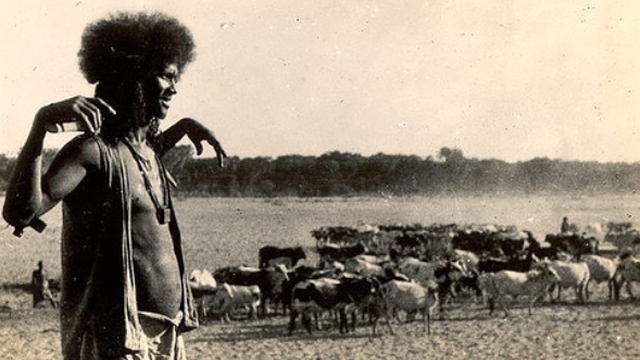
Where are we at with the big new things in knowledge management?
It’s an exciting time to be involved in knowledge management (KM), with some very important new initiatives underway that are shaping the future of KM as an organisational endeavour, professional career, and research discipline.
A year and a half ago, I profiled these initiatives in the article “Seven big new things in knowledge management.” These “big new things” were:
- Better evidence-based knowledge management
- Establishment of an international knowledge professionals society
- Chartered Knowledge Manager status
- Comprehensive, accredited knowledge manager education
- The open movement and working out loud
- Culturally aware knowledge management
- Improved participatory decision-making.
In this follow-on article, I look at the very significant progress that has been made with a number of the big new things, and also discuss the evolution of the others. From this analysis, I put forward a revised list, which you’ll find at the end of the article below.
1. Better evidence-based knowledge management
Status as at December 2019: Initiated and ongoing
Why it’s important
For organisations to have faith in KM initiatives, they need to be able to have the confidence that their investments of time and money are going to deliver the outcomes they have been told to expect. This means that the KM tools and techniques being put forward must be proven to be effective in addressing the issues faced by the organisation, and also proven to be workable in the particular circumstances of the organisation.
This means not assuming that something that was found to work well in one organisation can just be transplanted into another organisation with the same outcome. Professional expertise and experience in regard to what works can have value as an evidence source. However, there’s the real risk of confirmation bias, which includes the temptation to attribute significant outcomes to successful management or strategy, when in fact these outcomes were likely to have been random good luck.
Because of this, all KM decision-making should be based on KM research. Further, this evidence should be assessed for its quality and relevance prior to being used.
Progress so far and next steps
Supporting evidence-based KM is the primary aim of RealKM Magazine. To this end, we have:
- published a large and growing number of evidence summaries that KM practitioners can use to gain a ready understanding of the evidence base for particular KM tools and techniques
- published a continually expanding range of guidance and resources for evidence-based KM that discuss the fundamentals of evidence-based practice, including how to assess evidence for its quality and relevance
- actively promoted the importance of evidence-based practice to the KM community.
However, while these efforts have had a noticeable impact, there’s still a tendency for people working in KM to rely heavily on their professional expertise, to the exclusion of research findings.
With this in mind, in 2020 we plan to:
- index the evidence summaries so that KM practitioners can more readily find the current research evidence relating to particular KM tools and techniques
- more actively promote the importance of evidence-based practice to the KM community.
2. Establishment of an international knowledge professionals society
Status as at December 2019: Initiated
Why it’s important
As Dr Arthur Shelley discussed in a previous RealKM Magazine article and as presented in the draft charter, the proposed International Knowledge Professional Society (IKPS) would be a global umbrella network that represents professionals working in knowledge related disciplines.
The purpose of the IKPS would be to:
- Provide a voice for knowledge professionals within our own networks and across other professions
- Create awareness of the role of knowledge principles and practice and how they deliver mutual value to enhance performance (in whatever way this is appropriate for them)
- Create a collective of professional people who are actively engage in knowledge work to facilitate collaboration and provide a resource for government and other organisations to seek advice from
- Be the acknowledged expertise network for standards and events around knowledge management and related fields, including the community of expertise around international and national knowledge related standards
- Provide structured opportunities for career advancement by our knowledge professional members.
Progress so far and next steps
In late 2018, the IKPS LinkedIn group was established to facilitate KM community input into the proposed IKPS, and the draft charter was published. Active discussion took place in the LinkedIn group up to mid-2019.
Some may wonder why there’s been no visible progress since, but it needs to be recognised that the establishment of an organisation of the scale and intent of the proposed IKPS is a very significant undertaking, requiring a huge commitment of voluntary time and effort from Dr Arthur Shelley and the other KM community members involved. In this context, a six-month pause in progress is both understandable and insignificant.
However, I consider that the massive amount of work involved in establishing the IKPS is also cause to consider other ways of achieving the same end. Coinciding with the IKPS proposal, UK-based CILIP has begun to expand its focus to embrace KM and to also internationalise, indicating a desire to become the natural “home” for knowledge professionals globally. CILIP offers the benefits of being a large, long-established, and highly effective organisation that has been set up to support information and knowledge professionals and their professional development. The effectiveness of CILIP’s work in support of KM can be seen in its successful introduction of the CILIP KM Chartership professional accreditation program, as discussed in the Chartered Knowledge Manager status “big new thing” below.
The communities that have developed in support of the IKPS and CILIP both have very considerable KM expertise within their ranks, and CILIP has the established infrastructure to be able to very effectively support an international KM network. So it’s my suggestion that everyone consider joining forces to establish a much-needed international KM body as soon as possible.
3. Chartered Knowledge Manager status
Status as at December 2019: Underway
Why it’s important
As I discussed in a recent article, CILIP KM Chartership offers significant benefits. UK-based CILIP is a Chartered body, with its Royal Charter a recognition of pre-eminence, stability, and permanence in representing a given profession. Further, the UK is world leader in professional standards and chartered institutes, meaning that having a UK Chartered status in a given profession is advantageous at a global level.
The Chartered knowledge manager demonstrates that they:
- have both the knowledge and skills required for their role and the ability to apply them in their role
- have professional parity with other chartered professionals within their organisation
- are part of a network committed to reflective knowledge management practice.
Rather than KM Chartership being a ‘course’ that people do, it is very much a self-directed development journey because KM competence does not equate to the completion of training alone.
Progress so far and next steps
At a KM Summit in London on 15 May 2018, a group of about 50 people joined CILIP CEO Nick Poole to discuss the KM Chartership proposal. In the time since, a CILIP project board and advisory group has brought together KM expertise from across the world to guide the proposal to fruition.
A pilot cohort was enrolled in the first quarter of this year, and I was very excited to report on the development of the KM Chartership initiative as part of a KM certification panel at the KM Asia 2019 conference in Hong Kong in April.
Enrolment is currently in cohorts and by invitation to ensure that CILIP can successfully manage the candidate experience and appropriately ‘scale-up’ support, assessment, and administration arrangements. Invitations to join the second cohort were sent out in May 2019, and CILIP has already received a strong response to its recent call for candidates in the third cohort.
Interested people are now invited to register interest for the fourth and subsequent cohorts which will be announced from early 2020.
4. Comprehensive, accredited knowledge manager education
Status as at December 2019: Has contributed to two of the other “big new things”
Why it’s important
KM is a multidisciplinary management science, drawing from diverse fields including information theory, data sciences, librarianship, communications, marketing, psychology, biology, sociology, and management research. However, in his PhD dissertation, which we’ve serialised here in RealKM Magazine, Andre Saito concludes that most masters programs in KM “emphasize a single KM perspective, which provides a limited treatment of the field to program graduates.”
In response to these shortcomings, the RealKM Open KM Syllabus has been developed by RealKM founder Stephen Bounds in an attempt to systematically describe the themes and topics required for a fully-rounded education in knowledge management theory and practice.
The goal has been to provide a reference standard that can be used to:
- compare the content of educational KM programs
- create a common language for KM specialisations
- assist KM practitioners to identify opportunities for personal improvement.
The Open KM Syllabus was licenced for free use under a no-derivatives Creative Commons license to limit fragmentation and encourage consensus within the KM community.
Progress so far and next steps
Based on the RealKM Open KM Syllabus, I developed and taught two KM subjects at Shanxi University here in China. However, I found it very difficult to gain acceptance for many of the concepts in the syllabus, and also my proposal to expand the subjects into a full course. I subsequently realised that this is because KM approaches developed in the Global North are not automatically transferable to the Global South.
This awareness has since led on to my support for the new initiatives that are seeking to decolonise knowledge, and to encourage similar action to decolonise KM, as I further discuss in the culturally aware knowledge management “big new thing” below.
Another “big new thing” has also had implications for the RealKM Open KM Syllabus. This is Chartered Knowledge Manager status, as discussed above.
As I advised in a recent article, CILIP sees professional registration, including Chartership, as the ‘keystone’ in a professional career. Each individual takes their own journey, their own academic route, their own career route. The focus of CILIP KM Chartership is on the development and recognition of KM competence as described in the CILIP Professional Knowledge and Skills Base (PKSB).
I put forward the RealKM Open KM Syllabus as input into the development of the KM competence aspects of the PKSB. Beyond this, the syllabus continues to provide a sound basis for decision-making in regard to the themes and topics that should be considered in providing and choosing KM courses in the Global North. The syllabus is also very useful input into discussions in regard to the possible focus of KM courses in the Global South.
5. The open movement and Working Out Loud
Status as at December 2019: Underway
Why it’s important
The inclusion of this “big new thing” was originally prompted by Stan Garfield describing Working Out Loud (WOL) as “KM’s most transformative trend”, and Lena Ross introducing WOL as an important internal disruption that is changing the way we work.
John Stepper is the founder of Working Out Loud, and has authored the book Working Out Loud: For a Better Career and Life. He talks about five pillars of WOL:
- Make your work visible
- Lead with generosity
- Build a social network
- Make it purposeful
- Have a growth mindset.
From a KM perspective, Stepper alerts that the traditional focus on tools and taxonomies has left little room for a harder challenge: behaviour change and a cultural shift. However, he advises that knowledge management and WOL share common goals: getting people to share their knowledge, learn from others, and work better together.
The WOL methodology is designed to help people ease into collaboration and experience its benefits quickly and consistently, so that it becomes a habit. The methodology focuses on “WOL circles,” which are small groups of people who meet for an hour a week over the course of 12 weeks. Stepper has developed guides for each week with exercises to help participants identify their personal collaboration goals, develop trusted relationships, and practice collaborative behaviors.
Related to WOL are the various initiatives of the open movement, including open access, open innovation, and open educational resources. Like WOL, these initiatives encourage and facilitate the open sharing of knowledge.
Progress so far and next steps
For KM professionals interested in applying WOL in their own organizations, Stepper recommends “try it yourself.” Form a circle with colleagues, at or outside work, to experience the benefits personally. Then look for an easy entry point at your company. After you have started at least one circle at your company and achieved some success, have an event or workshop. Tell people about the methodology, share your own success stories, and offer some tips for getting started. As more circles form, collect feedback and share the results with management to gain additional visibility and start building WOL into existing programs and structures.
In regard to the open movement, knowledge managers should support as many of the open movement initiatives as possible, and knowledge management researchers should publish their research open access.
A 2017 paper recommends taking open innovation one step further by proposing that it’s time to move to “open knowledge” and “open knowledge management.” As the paper advises, the concept of open knowledge has gained considerable momentum in China, as shown by the examples of mobile handset manufacturers Huawei, Lenovo and Xiaomi. A recent paper further explores open innovation and open knowledge in Xiaomi, and as I state in my summary article, there’s much that organisations and KM practitioners in the Global North can learn from this case study.
The concept of open knowledge also aligns with the knowledge commons feature of a fifth generation of knowledge management for development that has been identified by Sarah Cummings and colleagues.
WOL has also recently been launched in China, where its compatibility with the open knowledge concept means that it’s much more likely to be accepted than some other KM practices and approaches (as I further discuss in the culturally aware knowledge management “big new thing” below).
6. Culturally aware knowledge management
Status as at December 2019: Underway
Why it’s important
There’s an assumption that KM practices developed in western cultures can simply be transplanted into other cultures. However, as I alert in a previous RealKM Magazine article, there is a serious global knowledge imbalance which extends to knowledge about KM.
This global knowledge imbalance means that research findings drawn primarily from the United States and Europe are being imposed on the very different cultures and societies of the Global South. As I’ve cautioned, this means that what many would regard as globally universal KM practices and approaches can’t actually be considered as such on the basis of the available evidence.
Further, not having researchers from the Global South take the lead role in researching issues related to the Global South increases the risk of incorrect conclusions being drawn. I’ve already documented cases of research in regard to China in which this was potentially a factor. In one example, incorrect conclusions were drawn about the socialisation of schoolchildren, and in another example, incorrect conclusions were drawn about knowledge flows in management structures.
Progress so far and next steps
As I discuss in the comprehensive, accredited knowledge manager education “big new thing” above, I became aware of the global knowledge imbalance after carrying out research in response to my experiences at Shanxi University here in China.
As a KM practitioner from the Global North who is currently living and working in the Global South, this issue has become of great interest and importance to me. This has led on to my support for the new initiatives that are seeking to decolonise knowledge, and to encourage similar action to decolonise KM.
While the physical colonisation of the countries of the Global South by the countries of the Global North may have ended, knowledge colonialism continues. As I discuss in a recent article, growing recognition of this continued colonialism has given rise to a growing number of decolonial initiatives. These include:
- Decolonising research and higher education
- Decolonising libraries
- Decolonising African knowledge systems.
As I argue in that article, given the growing momentum to decolonise knowledge, the KM community needs to play a more active role in progressing the decolonisation of KM. I plan to shortly engage in discussions in this regard with the leaders of the UK decolonisation initiatives.
Even more recently, a fascinating post on the i2sinsights blog has prompted me to realise that the initial focus of decolonisation on reversing the knowledge dominance of the Global North over the Global South needs to be extended to encourage the Global North to learn from the Global South, as I state in a comment on the post.
7. Improved participatory decision-making
Status as at December 2019: Initiated and ongoing
Why it’s important
The inclusion of this “big new thing” was originally triggered by the controversy that erupted when the draft of the new ISO 30401 KM standard was released for public review and comment. This controversy highlighted the need for better open, inclusive, and participatory processes, not just in KM, but generally across society.
This need has been further emphasised by the growing global backlash against decision-making that excludes or fails to consider the interests of all relevant stakeholders, as discussed in the introduction to a recent RealKM Magazine series.
Progress so far and next steps
This issue is gaining increasing attention in the academic literature and in practice, where the language has evolved from the “improved participatory decision-making” description that I’ve been using.
For example, two papers by Sarah Cummings and colleagues propose a fifth generation of knowledge management for development (KM4D). The identifying concept of the fifth generation of KM4D is cross-domain knowledge integration and knowledge co-creation, and its features are multiple knowledges, multi-stakeholder processes, global public good and knowledge commons, emphasis on local knowledge, and emergence and complexity.
The concept of knowledge co-creation is gaining considerable momentum. For example, the SDG Lab has put forward a list of co-creation rules of engagement as part of a new toolkit developed to support the achievement of the Sustainable Development Goals (SDGs), RealKM’s Dr. Arthur Shelley has also used co-creation as a foundation of the highly effective Creative Melbourne annual event, and I’ve used co-creation in numerous projects.
With this in mind, we’ve been very excited to recently bring you the landmark series “Co-creative approaches to knowledge production and implementation.” KM practitioners are encouraged to review the findings and recommendations of the research papers summarised in this series, and to reflect them in their work.
One article of particular relevance to KM is “What does complexity mean for co-creation and how stakeholders are engaged?” which advises that stakeholders have an essential and intimate role in making complexity evident. This is because different stakeholders will have different, often unique, perspectives on the elements of complexity, that is, the problem’s connections with other problems, different ways the problem can be defined, important uncertainties and unknowns, some of the real-world constraints on what can be done, and what will make a good solution.
We will also be bringing you further research findings in regard to cross-domain knowledge integration and knowledge co-creation into the future.
The new list
From the above analysis, the revised list of the seven big new things in knowledge management is:
- Better evidence-based knowledge management
- An international organisation to represent knowledge professionals
- CILIP KM Chartership
- Working Out Loud (WOL)
- Open knowledge and open knowledge management
- Decolonising knowledge management
- Cross-domain knowledge integration and knowledge co-creation.
Acknowledgements: Thanks to Stan Garfield for providing links to the updated WOL information summarised in this article.
Header image source: Gerd Altmann on Pixabay, Public Domain.
Also published on Medium.




What a remarkable commitment. This is important organizational work with global implications. . One area of focus that could be added to the charter is technology. As a KM oriented technology company, it is clear that KM is not just training and KM, the practice is also intricately integrated with a to be determined knowledge science, and technology. This inclusion could be the lead-in to university and college business departments.
I would like to see the group evolve over time and agree on a Knowledge Science, and review relevant KM, cognitive, Natural Language Understanding systems and practical AI.
I know this is well beyond what you have been working on, I am simply Working Out Loud.
Thank you and Stan for this valent efford!
Many thanks Dennis for your comment. A more up-to-date summary of emerging initiatives that are shaping the future of KM can be found in the comprehensive impact story we published earlier this year.
In regard to technology, the views that are most strongly expressed to me actually put forward the opposite viewpoint. They argue that too much of the focus in KM is on technology. For example, see the “Are these really KM trends?” item at the end of the latest “In the know” article. However, your comment suggests that understanding and integration could be enhanced both ways.
What you call knowledge science is already well advanced: that is, knowledge management as an academic (or scientific) discipline. Promoting this KM research to the KM community is the founding purpose of RealKM Magazine, and we’ve now published many hundreds of research summaries. Our achievements in this regard can be found in the impact story linked above.
For the latest academic overview of KM as a scientific discipline, see the article “Implications for the knowledge management discipline from a review of scientometric research.”